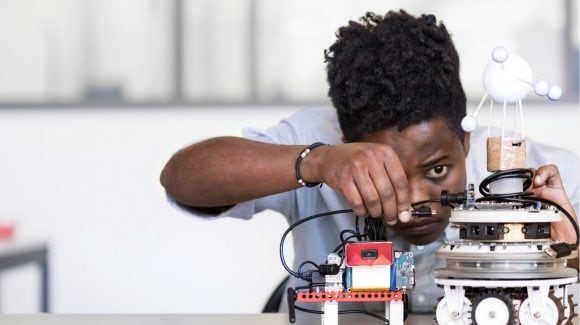Is automation taking jobs away?
Does new technology help level the playing field, or is automation taking jobs away and driving inequality? The answer is somewhere in between, according to the world’s leading economists.

![]()
header.search.error
Does new technology help level the playing field, or is automation taking jobs away and driving inequality? The answer is somewhere in between, according to the world’s leading economists.

There’s a concern, on the one hand, that technological innovation leaves a huge imbalance between supposedly “developed” countries, and those that are not as far ahead. Bridging that gap, argue many Nobel Laureates in Economics, is a way to ensure that technological innovation benefits everyone.
Robert Merton argues that advances in technology democratize access to key parts of the economy, especially in the financial system. “What we are going through now, all around the world, is a huge implementation of financial innovation driven by enormous big steps forward in financial technology, computing power, big data, which holds the promise to vastly reduce the cost of financial services.” This, Merton argues, actually benefits those who are currently underserved by the global financial system.
It’s not all positive, however. “The growth model that has been successful in most of the post-war period is a growth model based on high levels of investment and connectivity to the global economy,” says Nobel Laureate Michael Spence. Countries without rich natural resources often ground their economic output in manufacturing. With the rise of digital economies, these countries are at greater risk of falling behind, as they rely on labor-intensive manufacturing and assembly, like apparels, textiles, shoes.
The people who have suffered are the ones whose jobs were replaceable by the machines.
When discussing the future of advanced technology in terms of automation and artificial intelligence, Spence worries about the gap between those who can work alongside machines, versus those who don’t have the requisite skills and get left behind. For the educated, he says, “machines are complementary and increase your power. The people who have suffered in the data that we have are the ones whose jobs were replaceable by the machines.”
Regulation is as much, if not more important than technological advances, at least as far as leveling the playing field goes, argues Nobel Laureate Paul Romer. “If those new technologies are accompanied by the right rules and norms, then you can get the good parts of those new possibilities without the harmful side-effects. As a society, we’ve got to think just as explicitly about developing rules and norms, as we are about discovering new technologies.”
We’ve got to think just as explicitly about developing rules and norms, as we are about discovering new technologies.
Wikipedia is the perfect example of benevolent technology that drives growth, argues Romer. This is opposed to the rest of the tech innovation sphere, which is largely driven (and subject to) the advertising model. “The only way,” says Romer, “we’re going to get more of the tech world that produces the kind of valuable services that Wikipedia offers is if we act through our government and say, ‘you’ve got to stop doing bad stuff. Do something that’s good for everybody.’”
“Technology, if we’re not careful, can drive inequality. The top 20 tech companies in the world are based in America and China,” notes Jean Tirole. “The value creation in tech is going to be basically in two countries,” he adds. “That’s going to create a fair amount of inequality across countries.” Domestically, that pattern is mirrored. “Many people will gain from tech, but usually they are highly educated.”
It comes down to inequality, agrees Nobel Laureate Christopher Pissarides. The only way to balance it out is through education. “Lifelong learning is absolutely essential in today’s economy because the type of knowledge that we require is changing so fast.”
Lifelong learning is absolutely essential in today’s economy.
Ultimately, says Pissarides, it’s about purposeful inclusion. He says we must “avoid shifting any burden from the job destruction to a small group of workers. And here is where I see a big role for government policy in dealing with inequality and in dealing with those who need to make the transition from the jobs that are being made obsolete, that leave the market, to the new jobs that are being created.”
Get the latest Nobel Perspectives updates delivered to you.
Get the latest Nobel Perspectives updates delivered to you.